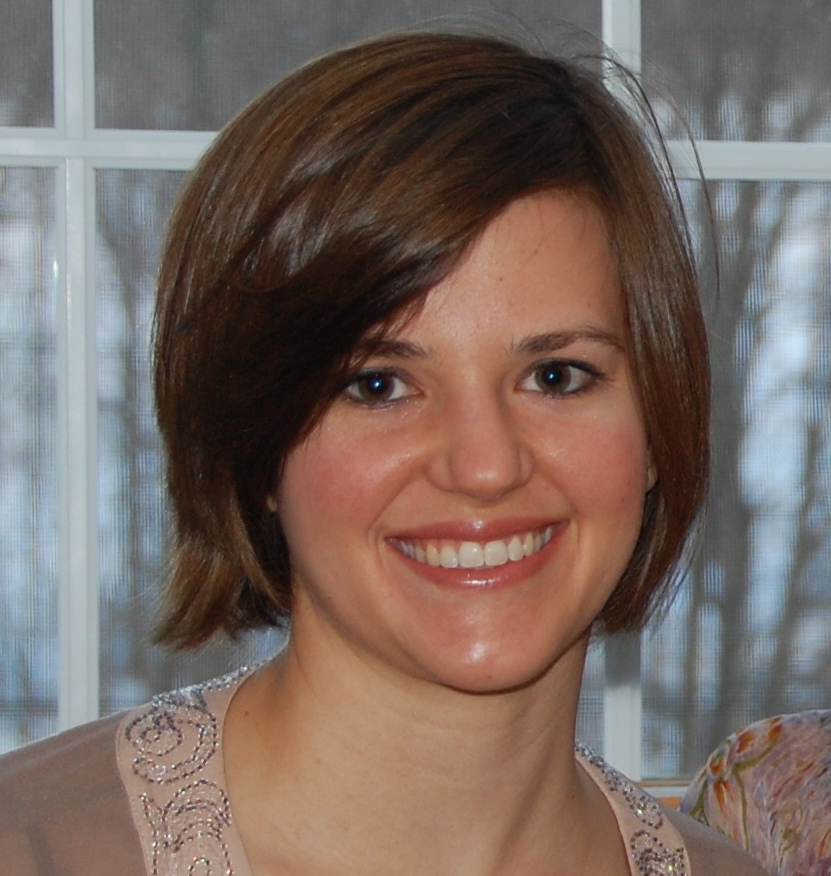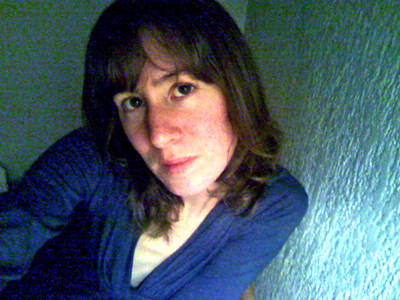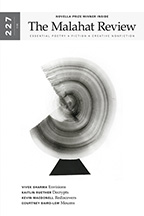Interviews
A Radical Openness:
Alicia Lawrence in Conversation with Julie Joosten
 Julie Joosten talks with Malahat volunteer Alicia Lawrence about "The Sun Estate" (#175, Summer 2011), winner of the 2011 Malahat Review Long Poem Prize.
Julie Joosten talks with Malahat volunteer Alicia Lawrence about "The Sun Estate" (#175, Summer 2011), winner of the 2011 Malahat Review Long Poem Prize.Congratulations on winning The Malahat Review's 2011 Long Poem prize. “The Sun Estate” is a hauntingly beautiful poem, worthy of this award. Can you tell our readers a bit about your background as a writer?
I began writing when I was very young and wrote a lot in university. A couple of years ago, I completed an MFA in poetry at the University of Iowa. I like to write early in the morning and while listening to music. Writing is the deepest form of engagement I know.
Can you tell us about the significance of “estate” in the title of your poem, “The Sun Estate”?
Throughout working on the poem, I was interested in the way that a landscape can be a subject that, in concert with the poem’s “I,” forms an environment. This environment is comprised of perception and relationship. In the middle of writing “The Sun Estate,” I found myself drawn to elegies and elegiac writing that engages these environments, and I became particularly absorbed in Emerson’s “Experience.” In “Experience,” Emerson writes: “In the death of my son, now more than two years ago, I seem to have lost a beautiful estate—no more.” His use of “estate” allows several of the word’s definitions to resonate at once, even contradictorily. Most compellingly to me, Emerson alludes both to a literal, landed home and landscape, and to a way of being in the world—and he loses both “estates” in surprising ways. He asserts that “grief is shallow” and the loss of his son is, in its shallowness, no more devastating than losing a “beautiful estate,” but this realization also entails the loss of a “beautiful estate” in the form of Emerson’s ideal that souls “touch their objects.” In titling the poem, in a way, after Emerson’s grief, I wanted to engage his conception of loss while also offering a different possibility for relation.
When you say that you wanted to offer “a different possibility for relation,” is your concept of sense and experience different from Emerson’s seemingly “contained” ego that is bound within his prose?
Yes, it’s different from a “contained” ego. I’m interested in the moments when the ego forgets itself and its egoic forms to exceed its containment; this movement allows what was once ego but is now—well what? An emerging something—to merge with or inhabit other thoughts, consciousnesses, feelings, and environments. I’m interested in attending to the question of what the ego-that-forgets-itself becomes by following the movements by which it becomes altogether different from its form as a “contained ego.”
I am very interested in your use of the page. You use spacing and indenting to dismantle the predictability of poetic structure, and the poem takes a progressively different shape as the reader turns each page. Does the story change when the words are set down on the page in a different way?
In each section of the poem, I searched for a form that itself helped form the thinking and feeling that the section developed. Discovering the distinct shapes of the parts of the poem was also a way of discovering a mode of apprehension that the language and form of the section helped make possible. The poem ranges from short lyric lines to long prose lines, and uses the page as a field to be explored. My experience of writing it was that this range was necessary to allow my thinking to turn to, wander from, and return to the ideas and perceptions forming “The Sun Estate.”
Does the concrete use of the page reflect and elucidate the emotional content of the poem?
For me, it both generates and reflects it. I hope it does something similar for the reader.
You explore the less tangible aspects of sensory experience, such as when you write “The hills bringing the mind not to itself but to the idea of green,” and “I feel your voice on my skin.” Can you talk about the way the senses are portrayed as not just receptive, but engaged in multiple fields of experience—even actively so, such as when, “The eye makes”? Does portraying the multiplicity of senses rewrite our understanding of the quality and significance of our experiences?
In my poems, I’m interested in exploring what happens when the traditional markers of sense dissolve and new modes of perception emerge—from the mind’s consonance with the weather, to a numbness to oneself that allows for a feeling of the sky. Engaging the “multiplicity of senses” that you note is a way of attending to often overlooked or minimally perceptible phenomena that become more apparent by being encountered askew. I’ve been exploring this skewing as it occurs in combinations of senses, in the feeling of senselessness as an inhabitable feeling, and in forms of thought that take place as feeling.
Your description of sensory experience seems to pierce through the landscape of “The Sun Estate,” and the I/you dichotomy that figures in the poem suggests that the sensory interaction is relationally relevant. Are human relationships significant in this work, and in what way?
Yes, they are central to “The Sun Estate.” The poem is, for me, in many ways a love poem that’s trying to think through and feel through how empathy emerges, operates, and expands. Relationships between people are fundamental to that exploration.
How does empathy emerge in the poem? Is it through the shared sensory experience, or is it through something else—the way that experience is interpreted? And is empathy the foundation for the relationship you describe, or the goal of interaction that defines the relationship?
Empathy is a daily, achieved manifestation of the dynamic I’m interested in exploring, but I’m also interested in a more radical openness that empathy allows us to begin thinking about. So for me empathy is an incredible, complex, advanced starting point from which to engage a radical hospitality to self-dissolving perceptions that allow a different form of consciousness to emerge.
* * * * * * * * *

Alicia Lawrence
The Long Poem Prize runs in odd years, alternating with the Novella Prize (which runs even years). The next deadline for our Long Poem Prize is February 1, 2013.









